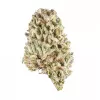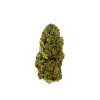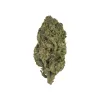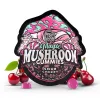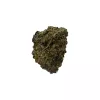THCA vs Delta 8 Explained: Effects, Legality & More
Cannabis boasts a diverse array of compounds, each with its distinct characteristics and effects. Among these compounds lies THCA, an intriguing cannabinoid gaining attention for its unique properties and potential benefits.
The cannabis plant contains numerous chemical compounds known as cannabinoids, the most famous being THC (delta-9-tetrahydrocannabinol) and CBD (cannabidiol). Each cannabinoid presents varied effects on the body's endocannabinoid system, influencing functions such as mood, pain perception, and appetite.
Tetrahydrocannabinolic acid (THCA) stands as a precursor to the well-known psychoactive compound THC. In its raw form, THCA does not exhibit intoxicating effects typical of THC. Rather, it offers therapeutic potential and unique attributes, which, upon decarboxylation through heat or time, convert to the more commonly recognized THC.
As an emerging subject of interest within the cannabis realm, THCA holds promise for individuals seeking alternative options for managing various health conditions without experiencing the psychoactive effects traditionally associated with cannabis consumption.
What is THCA?
THCA, or tetrahydrocannabinolic acid, is a cannabinoid found in raw, unprocessed cannabis plants. Chemically, it is an acidic precursor to THC (delta-9-tetrahydrocannabinol), the primary psychoactive compound in cannabis.
In contrast to THC, raw THCA is non-intoxicating. This crucial difference sets THCA apart from its more recognized counterpart. While THC delivers psychoactive effects when heated or exposed to light, THCA remains non-psychoactive as long as it is not exposed to those same elements.
This distinction is due to the carboxylic acid group attached to THCA's molecular structure, which prevents it from binding directly to the brain's cannabinoid receptors, thus not inducing the typical high associated with THC.
During the process of decarboxylation, or the process of exposing THCA to heat, removes that extra carboxylic acid group that makes THCA an acid, effectively converting the compound into the buzz-worthy, psychoactive THC.
THCA is just one among the myriad cannabinoids present in cannabis, each exhibiting unique effects and potential health benefits. Its precursor role in forming THC upon decarboxylation through heat or time remains a defining characteristic, allowing for a deeper understanding of the chemical complexities within the cannabis plant.
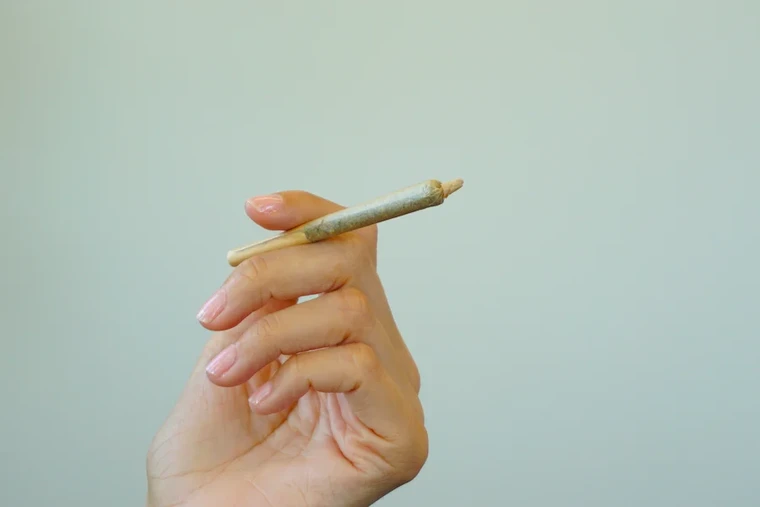
THCA vs THC & Delta 8
THCA and THC share a similar molecular structure but have a distinct variance that accounts for their divergent properties. THCA, as the precursor to THC, contains an additional carboxylic acid group (hence the "A" in THCA) which THC lacks. This differentiation influences their behavior when consumed.
THCA, in its raw form, doesn't deliver the intoxicating effects associated with THC. The carboxylic acid group in THCA prevents it from directly binding to the body's endocannabinoid receptors, which are the primary sites THC interacts with to induce its psychoactive effects.
Conversely, THC, once activated via decarboxylation – a process triggered by heat exposure, combustion, or aging – becomes psychoactive. Upon binding to the CB1 receptors in the brain, THC induces various effects, including euphoria, altered perception of time, increased appetite, and relaxation. This is in stark contrast to THCA's non-intoxicating nature.
THCA vs Delta 8
While THCA is the precursor to delta 9 THC, delta 8 THC is a lesser cannabinoid known for its mild, relaxing effects. While delta 8 products do cause psychoactive effects, they’re estimated to be about half as strong as those caused by delta 9, gaining delta 8 the nickname of delta 9’s “nicer younger sibling.”
This means that in its decarboxylated form, THCA is twice as strong as delta 8, while its natural, raw, non-psychoactive nature remains nonexistent in comparison to the same compound.
Effects of THCA
THCA, unlike its converted form THC, lacks direct psychoactive effects when consumed in its raw state. It doesn't bind effectively to the CB1 receptors in the brain, which are crucial for inducing the typical psychoactive responses associated with THC consumption. This non-intoxicating attribute distinguishes THCA from THC, making it an appealing option for individuals seeking therapeutic benefits without experiencing a high.
Research suggests that THCA may interact with the body in ways distinct from its psychoactive counterpart. While THCA doesn't induce the euphoria commonly linked with THC, it exhibits potential anti-inflammatory, neuroprotective, and antiemetic properties.
Studies have indicated that THCA might influence various biological pathways, potentially offering benefits for conditions such as chronic pain, inflammation, nausea, and neurodegenerative disorders.
THCA's non-psychoactive nature and purported therapeutic properties have garnered attention for potential medicinal applications. Some users incorporate THCA into their wellness routines as a dietary supplement or seek it out for its purported benefits in managing certain health conditions.
In its decarboxylated form, of course, THCA becomes THC, and thus has the same exact psychoactive effects as THC we all know and love.
Consumption and Effects
THCA is commonly found in raw or unheated cannabis. As it's in its acidic form, it doesn't produce the psychoactive effects associated with THC.
People consume THCA primarily through raw cannabis or its juice. Juicing raw cannabis involves blending or juicing the fresh leaves and buds without applying heat, thereby preserving THCA's raw and non-intoxicating properties.
Another popular way of consuming THCA is through THCA gummies, as the creation process for these edibles does not trigger decarboxylation.
For those wishing to consume decarboxylated THCA that becomes THC and causes psychoactive effects, THCA flower, pre-rolls, or disposable vapes are certainly the way to go.
Does THCA Get You High?
When THCA is consumed in its raw, unheated state, it does not induce a high. Unlike THC, THCA does not bind effectively to the body's cannabinoid receptors, particularly the CB1 receptors in the brain responsible for the euphoric effects of THC.
Thus, THCA consumption does not result in the typical psychoactive experience associated with THC-rich cannabis products.
When consumed via smoking or vaping, however, THCA converts into THC, and does, in fact, cause the psychoactive high commonly associated with cannabis consumption.
Conversion of THCA to THC
The process of converting THCA to THC occurs through decarboxylation, which involves the application of heat. When cannabis containing THCA is heated—through methods like smoking, vaping, or baking—the heat triggers decarboxylation, converting THCA into THC.
This transformation enables THC to bind to cannabinoid receptors, resulting in the psychoactive effects commonly experienced after consuming heated or decarboxylated cannabis products.
For instance, when raw cannabis containing THCA is smoked or vaporized, the heat initiates decarboxylation, converting THCA to THC, consequently leading to the psychoactive effects associated with THC-rich cannabis.
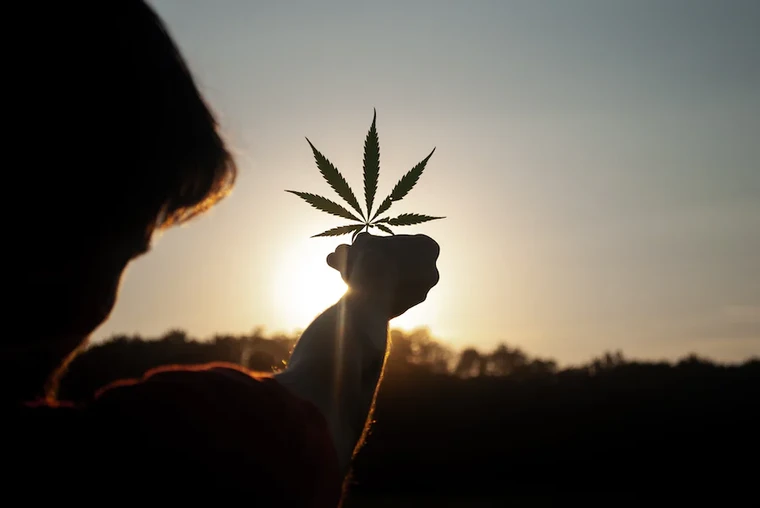
THCA in Drug Tests
THCA might be detected on drug screenings. Traditional drug tests like urinalysis or saliva tests usually target THC metabolites rather than THCA itself. However, some tests might detect THCA, especially if the test is more sensitive or designed to detect a wider range of cannabis-related compounds.
|
Factors Affecting THCA Detection on Drug Tests |
Description |
|---|---|
|
Consumption Method |
Methods involving heat, like smoking or vaping, convert THCA to THC, affecting detection. Consuming raw cannabis may increase THCA detection. |
|
Metabolism |
The body processes THCA differently from THC. THCA doesn't directly convert to THC in the body, but can convert during smoking or heating. |
|
Sensitivity of the Test |
Tests with higher sensitivity can detect lower concentrations of THCA. Some tests specifically target THCA, while others focus on THC metabolites. |
|
Testing Window |
Detection window varies based on usage frequency, dosage, and individual metabolism. Occasional users may have a shorter detection window compared to regular users. |
|
Type of Test |
Different tests (urine, blood, saliva, hair) have different detection windows and sensitivities, affecting the likelihood of THCA detection. |
It's essential to note that drug testing protocols vary, and while some tests may detect THCA, others may focus on THC metabolites. Always consider the specific testing procedures and individual circumstances regarding THCA detection in drug tests.
Legal Status
Regarding the United States, THC itself, when derived from marijuana, remains a Schedule I controlled substance federally. However, hemp-derived cannabinoids, including THCA, have a different legal status due to the passing of the 2018 Farm Bill.
Under the Farm Bill, hemp-derived products containing less than 0.3% THC are generally considered legal on a federal level. This distinction legalized the production and sale of hemp and its derivatives, including many forms of THCA, throughout the country.
It's essential to note that while federal law permits hemp-derived THCA, state laws may vary. Some states have specific regulations or prohibitions regarding the possession, sale, or use of THCA or cannabis-related products. Therefore, it's crucial to review and understand state laws where you reside or intend to use THCA.
THCA in Cannabis Products
THCA percentage in cannabis products serves as a significant indicator of the potential potency of the product, although it doesn't directly equate to psychoactive effects. Instead, it denotes the amount of THCA present before its potential conversion to THC.
In various cannabis products, the THCA concentration can vary significantly. Here are a few examples:
-
Raw Cannabis Flower: Fresh, unprocessed cannabis flowers contain THCA in its highest natural form. The percentage of THCA in cannabis buds can range anywhere from a few percent to over 20%, depending on the strain and growing conditions.
-
THCA Diamonds: These are crystalline formations primarily composed of THCA. They are highly concentrated and can have extremely high THCA percentages, sometimes over 90% or more.
-
Extracts and Concentrates: Products like hash, kief, and certain cannabis extracts can also have high THCA percentages. These concentrates are made by isolating trichomes from the plant material, resulting in increased potency.
The THCA percentage provides insight into the potential cannabinoid content before decarboxylation. When heat is applied to cannabis, such as through smoking, vaping, or cooking, THCA converts into THC.
Therefore, a high THCA percentage in raw cannabis or concentrates doesn't necessarily mean the product will induce immediate psychoactive effects. The actual psychoactive potency would depend on the amount of THCA converted to THC through decarboxylation.
Consumers interested in the effects of THCA should be aware that while high THCA content might suggest potential potency, the actual psychoactive impact might only be realized through decarboxylation, such as when exposed to heat during smoking or vaping.
Production of THCA Products
Producing THCA-rich cannabis flower involves a meticulous process centered around genetic selection, precise cultivation techniques, and careful handling during harvest and curing.
Cultivators aim to encourage the growth of cannabinoid-rich trichomes by creating an ideal environment that promotes THCA synthesis within the plant. These environmental factors include temperature control, humidity levels, adequate lighting, and nutrient provision, among others.
Strains selected for their higher THCA content are cultivated to optimize cannabinoid production.
The harvest timing of the cannabis plants is critical for maximizing THCA content. Cultivators typically gather the plants during the flowering phase before the trichomes reach full maturity.
After harvest, the buds undergo a drying process to remove excess moisture and preserve the cannabinoid content. Subsequently, the buds are cured, a crucial step where they are stored in controlled conditions for several weeks to further develop cannabinoids and terpenes.
This curing process not only refines the aroma and flavor but also enhances the potency of THCA within the flower.
It's important to note that reputable producers and licensed dispensaries usually refrain from spraying cannabis flower with any additional substances. However, in unregulated or illegal markets, there have been instances where cannabis products, including flower, might be subjected to adulteration.
To ensure the quality and safety of cannabis products, consumers are advised to purchase from licensed dispensaries and reputable sources that prioritize product integrity and adhere to strict quality control measures.
Safety and Risks
THCA itself does not possess psychoactive properties in its raw form. Unlike THC, THCA does not induce the typical "high" associated with cannabis consumption.
It's imperative to understand that THCA needs to undergo a process called decarboxylation, typically through heat exposure, to convert into THC, the psychoactive compound. As such, consuming THCA in its unheated state—like in raw cannabis or certain products—will not result in a psychoactive experience.
In terms of safety, THCA is generally regarded as non-toxic and well-tolerated by most individuals. Studies suggest that it holds promise for various therapeutic benefits without the psychoactive effects commonly linked with THC consumption.
THCA has shown potential as an anti-inflammatory, anti-emetic agent, among other properties, contributing to its growing interest in the medical field.
While THCA is considered safe for most people, there might be some potential risks or contraindications, especially for certain individuals. As with any cannabinoid, individual reactions can vary, and some people might experience side effects such as dry mouth, dizziness, or fatigue.
Pregnant or breastfeeding individuals, those with certain medical conditions, or individuals on medications should consult healthcare professionals before using THCA products due to potential interactions or adverse effects.
As research continues to expand, a clearer understanding of THCA's safety profile will likely emerge, providing more comprehensive guidelines for its use.
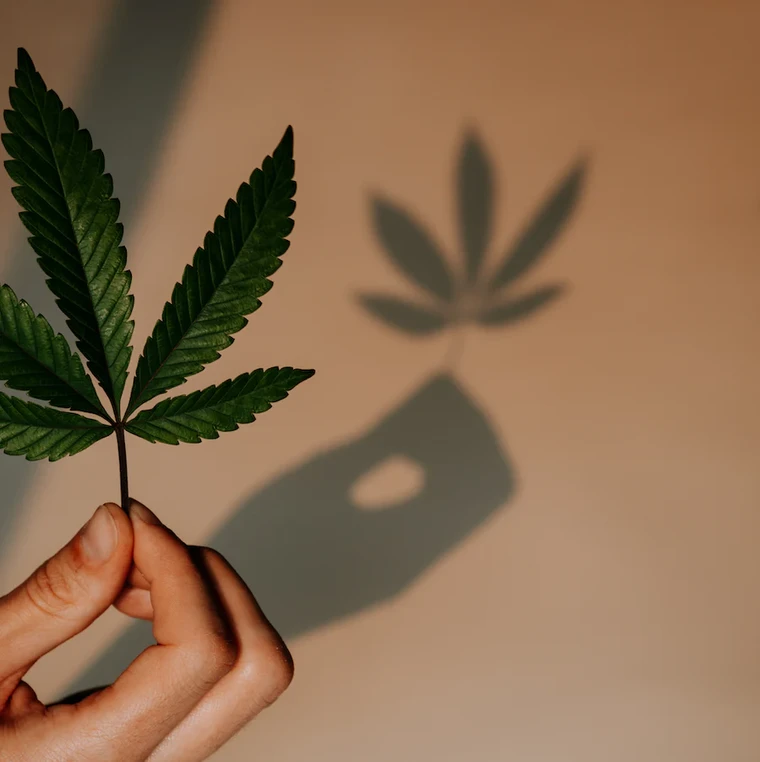
Persistence in the Body
The duration for which THCA stays in the body can vary significantly among individuals. Unlike THC, THCA doesn't persist in the body for extended periods because it doesn't directly metabolize into THC unless decarboxylated through heat exposure.
Factors that might influence the presence of THCA in the body include the method of consumption, metabolism, frequency of use, and the body's individual characteristics.
In instances where THCA is decarboxylated into THC, particularly through smoking or vaping, the converted THC metabolites might show up in drug tests, as some tests can detect these THC derivatives.
The detection window for THCA might be shorter compared to THC, as it doesn't accumulate in fat tissues like its decarboxylated form.
Emphasis is required on the fact that these guidelines are for non-decarboxylated THCA. Once THCA is decarboxylated, whether through smoking, vaping, or other heat-applying methods, THCA becomes THC, and thus persists in the body and shows up on drug tests in the same way as “regular” THC.
THCA: Understanding Untapped Cannabis Components
THCA, a non-psychoactive precursor to THC, exhibits promising potential in the realm of cannabis compounds. While it doesn't induce intoxication on its own, its conversion to THC via decarboxylation offers intriguing possibilities for therapeutic benefits.
THCA's non-psychoactive nature and potential medicinal properties make it an appealing subject for further research, while its potential to become THC makes it insanely popular among those who wish to experience the full psychoactive effects of cannabis.
In simpler terms, THCA offers the best of both worlds.


